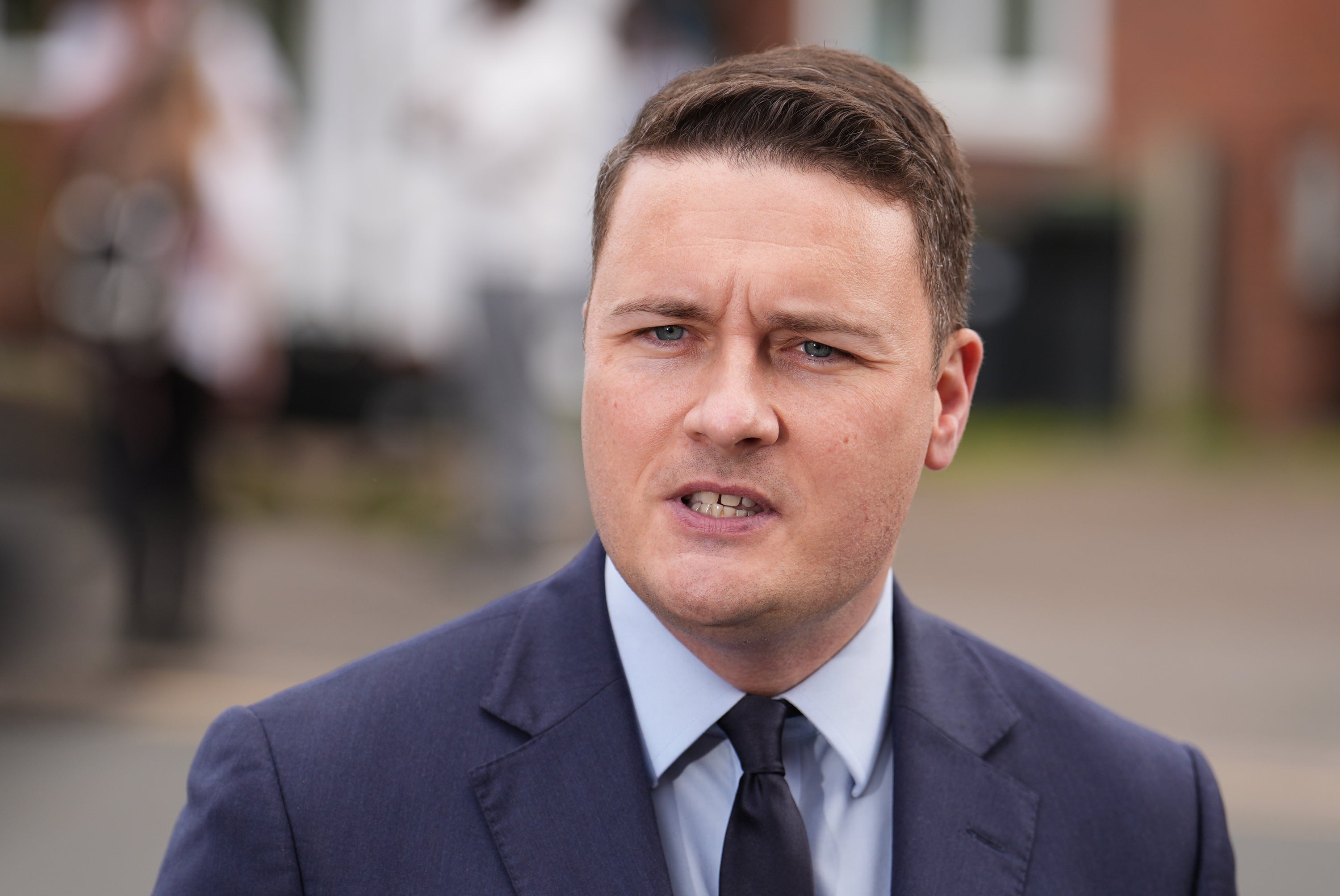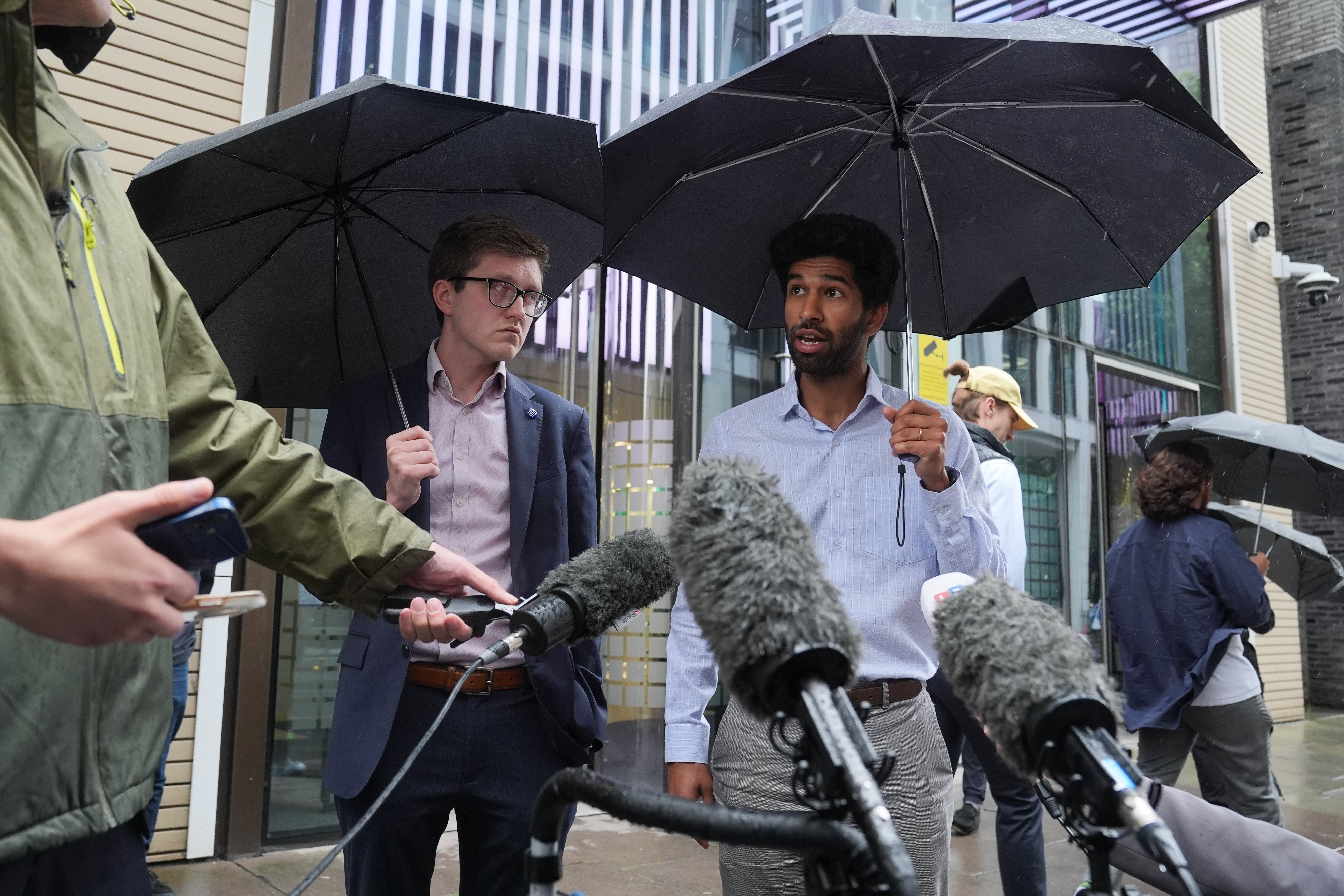Junior doctors offered 22% pay rise to head off strikes
Junior doctors will have now vote on whether to accept the new pay offer from the government
Junior doctor strikes could come to an end after the government offered unions a new 22 per cent pay deal, the government has announced.
Following negotiations, health secretary Wes Streeting and the British Medical Association have come to an agreement which will be put to junior doctors to vote on.
In a statement on Monday, the BMA and DHSC confirmed the total pay uplift across 2023-24 and 2024-25 will be 22.3 per cent on average.
The offer consists of an additional uplift of 4.05 per cent for the pay year 2023/24 on top of the average 8.8 per cent already awarded. This will be backdated to April 2023.
For 2024-25 the government have offered junior doctors an average increase of 8 per cent.
The BMA and DHSC have also agreed to change the name of “junior doctors” to “resident doctors” from September of this year.
Ministers entered formal negotiations with the BMA’s junior doctors’ committee days ago. The breakthrough comes after more than a year of strikes and deadlocks between the previous government and junior doctors.
JDC co-chairs Dr Robert Laurenson and Dr Vivek Trivedi said: “We are announcing that almost two years into our dispute we have received an offer from the Government that our committee thinks merits consideration by our membership. It should never have taken so long to get here, but this offer shows what can be achieved when both parties enter negotiations in a constructive spirit.
“This offer does not go all the way to restoring the pay lost by junior doctors over the last decade and a half. However, we have always said that we did not expect to get there in one go. We are recommending that members vote for the deal. We believe that this is the best offer available at this moment in time.”

Health and Social Care Secretary Wes Streeting said: “I am delighted that we have agreed an offer that finally paves the way to ending industrial action which has caused untold misery to patients and staff.
“Everyone agrees we can’t have more disruption, more cancelled appointments, which is why my priority from day one has been to end this dispute.
“This has been a tough negotiation, but we have worked rapidly to reach a fair offer.”
He said the offer was fair to junior doctors and fair to patients and the NHS.
“It also represents an opportunity to truly reset relationships so we can begin working together to bring waiting lists down and fix the broken NHS,” he added.
The deal would mean a doctor starting foundation training in the NHS will see their base pay increase to £36,600, compared to around £32,400.
On Monday GPs began a vote on whether they will take strike action in a move health leaders have said would have “catastrophic” impacts on the NHS.
Over the last year and a half, more than 1.4 million NHS appointments and operations have been cancelled due to strikes, with the cost to the health service estimated to have reached £3 billion.
Junior doctors in England have taken industrial action 11 times in the past 20 months.

Their last strike – which took place from 27 June to 2 July, just days before the general election – affected 61,989 appointments, procedures and operations, according to NHS England.
Mr Streeting and prime minister Keir Starmer have previously wad they would not meet previous pay demands from the BMA for junior doctors to get a 35 per cent pay rise. However, the BMA had indicated this would only need to be a starting point for negotiations.
This story was updated at 18:00 with statements from the BMA and DHSC.
Join our commenting forum
Join thought-provoking conversations, follow other Independent readers and see their replies
Comments